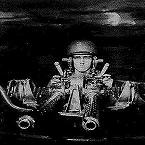Zulu
Posts: 17
Joined: 10/8/2003
Status: offline

|
Hi Plasticpanzers,
I think you have to look at this game in a different way. In UV you really do not issue orders, but you rather issue strategic directives. Your local commanders keep your directives in mind, but then issue their own operational orders.
These orders may, in some cases, differ significantly from your initial directives for a number of reasons: "morale" is only one of them. By the way, I think you have to look at "morale" in more abstract sense: in the game, failing a morale check, does not mean to chicken out or to be coward. It usually means that the local commander has decided that it is safer to preserve the existing assets rather than risking them in a raid. This may happen because he is less aggressive than his superior (you) or because he is an idiot or for a number of other reasons between these two extremes. In fact, some players have often expressed frustration at the fact that they cannot change the local commanders at their discretion (especially in air groups). But again, are we sure that is highly unrealistic? When you are heading a very large organization, it often happens that you would like to replace a subordinate or two, but you cannot. Or, if you can, it takes a lot of time and effort. Why? I can think of many reasons: red tape, or the subordinate is the son or relative of some high brass at the pentagon. These are just two, but there may be many others.
I think that the game does really a good job in representing the randomness and the complexity of managing a large organization. Granted, there are some instances where the game behavior is really very very weird (bugs?), but overall I don't find that this detracts much from the gaming experience.
Basically, you as supreme commander give an input, then there is a lot of muddling and tinkering in middle and low sections of your organization and something happens at the end. Especially at the beginning, it is often the case that what happens is not what you wanted. By the way, this matches closely what I see happening in large organizations in real life.
As a general commander, you must be a manager as much as a warrior and, over time, you must try to allocate your assets and people and design your strategy in such a way that you get as close as possible to achieve the results you are looking for.
Oh, well: this is only my opinion and it is worth what it costs  but this is how I read the game and why I like it. It is definitely not a game for the impatient, but I think that even Nimitz, McArthur and Halsey could not really afford to be very impatient at that time... but this is how I read the game and why I like it. It is definitely not a game for the impatient, but I think that even Nimitz, McArthur and Halsey could not really afford to be very impatient at that time...
Cheers,
Zulu
< Message edited by Zulu -- 9/30/2005 4:13:25 PM >
|
 Printable Version
Printable Version





 but this is how I read the game and why I like it. It is definitely not a game for the impatient, but I think that even Nimitz, McArthur and Halsey could not really afford to be very impatient at that time...
but this is how I read the game and why I like it. It is definitely not a game for the impatient, but I think that even Nimitz, McArthur and Halsey could not really afford to be very impatient at that time... 

 )
) 







 New Messages
New Messages No New Messages
No New Messages Hot Topic w/ New Messages
Hot Topic w/ New Messages Hot Topic w/o New Messages
Hot Topic w/o New Messages Locked w/ New Messages
Locked w/ New Messages Locked w/o New Messages
Locked w/o New Messages Post New Thread
Post New Thread